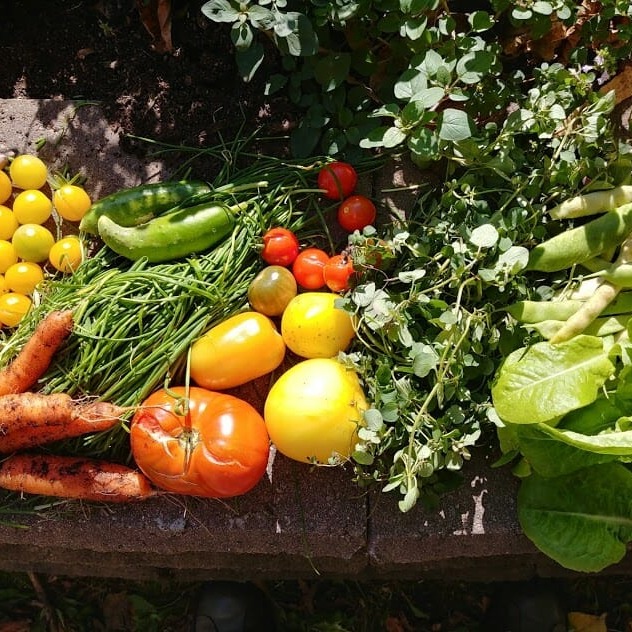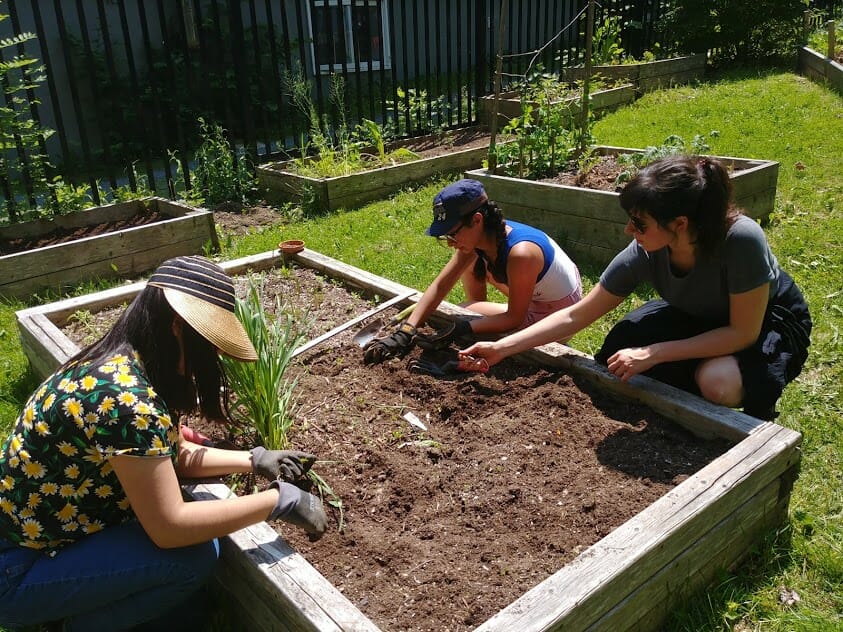
Helping hungry students
Dalhousie Urban Garden Society harvests funds for food security
While their garden may be emptier than usual, one student society at Dalhousie University is still finding a way to put food on students’ tables.
The Dalhousie Urban Garden Society (DUGS) launched a new monthly grocery bursary on Feb. 4, 2021, to support students from Dalhousie and the University of King’s College who are struggling with food security. Students will be able to apply for the bursary each month, with four students selected a month to receive $200 from DUGS.
“We realized that the pandemic has probably made it a lot more difficult for students, and community members, but particularly students, to afford groceries,” said Ashley Osa-Peters, an executive member of DUGS. “[The bursary is] something that we’ve been wanting to do to kind of bridge the gap in food insecurity in our community.”
How the bursary came together

Before the COVID-19 pandemic, DUGS provided small pieces of land in their garden on Henry Street to students interested in gardening. Students could grow crops and harvest them, with all produce going back to students, the Loaded Ladle or the Dalhousie Student Union (DSU) Foodbank.
DUGS is a levied society, meaning they receive funds through students’ DSU fees to conduct their operations. But this winter, with students off-campus due to virtual classes, DUGS decided to use all their funds to support student food security, Osa-Peters said.
Using their levy funds, DUGS is supporting the grocery bursary and sponsoring the free food boxes at the DSU Foodbank, she said.
“[The grocery bursary] makes the most sense for us in a year where we can’t interact with our student population as much as normal. It makes the most sense for us to give back in this way,” Osa-Peters said.
The goal of the bursary, according to Osa-Peters, is “making sure that people can at least for one month just not worry about where their next meal is coming from.”
The bursaries will be awarded each month through a selection committee of students created by DUGS, Osa-Peters said.
The committee selects students based on need and strives to be as wide-reaching and as equitable as possible.
“We selected people who are like-minded, who are knowledgeable on food insecurity, who are well versed on confidentiality and equity, and everything like that,” Osa-Peters said.
Students who are awarded the bursary must re-apply if they require it again the next month to ensure all applicants always have an equal chance, Osa-Peters said.
How food insecurity affects students
Lord Abbey, associate professor in the department of plant, food, and environmental sciences at Dal said food insecurity can have far-reaching effects on a student’s life.
“Studying, reading, assignments and tests, and all this is already stressful. On top of that, students have to eat. If the student finishes their schoolwork and goes back home with not enough food or adequate food to eat or nutritious food, this impacts student mental health, and it’s very significant,” Lord said.
Students are also facing decreased employment opportunities due to business closures during the pandemic, Abbey said, which can make it more difficult for students to ensure they’re food secure.
For a person to be food secure, Abbey said, they must have an adequate supply of nutritional and culturally appropriate food all year round. The culturally appropriate aspect means international students are more prone to food insecurity, Abbey said.
When international student’s come to Canada, they may be in a location where food is available, but their specific cultural foods are not, Abbey said. Forcing students to adapt to a Canadian diet can be difficult for students just arriving in the country, Abbey said.
“If food is enough, it’s adequate and it’s available all year round. But [if] it’s not culturally appropriate, it means I will not have what I need to eat,” Abbey said. “That’s why, you know, every component is very important when you are defining food security.”
Osa-Peters said DUGS hopes the bursary will help students secure the culturally appropriate food they need.






